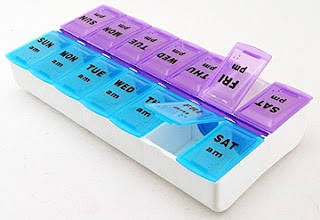One of the greatest challenges in managing chronic disease is ensuring that patients adhere to their medication regimens. Some interventions have focused on making it easier for patients to access their prescriptions; for example, a study in the most recent issue of The American Journal of Managed Care® found that synchronized prescription refills were associated with improved adherence among patients taking multiple maintenance medications.
 |
| Not much help with adherence after all |
However, pharmacy benefit managers, insurers, and providers have shown interest in simpler, lower-cost strategies that could potentially achieve the same outcomes. In a study published recently in JAMA Internal Medicine, researchers set out to determine whether 3 simple medication reminder devices could improve adherence among patients who were enrollees of a pharmacy benefit manager.
The Randomized Evaluation to Measure Improvements in Nonadherence from Low-Cost Devices trial, aptly named REMIND, selected 36,739 patients on chronic disease treatment regimens and 15,555 patients taking antidepressants who had been suboptimally adherent prior to the study. The patients were stratified by regimen type (chronic disease or antidepressant) and were randomly assigned to either a control group or 1 of 3 reminder devices:
- A pill bottle with a strip of toggles that can be slid after each day’s dose has been taken
- A pill bottle cap with a digital timer displaying the time elapsed since the medication was last taken
- A plastic pillbox with 1 compartment for each day of the week
After 12 months, these interventions had negligible effects on medication adherence as measured by prescription claims. For instance, 15.1% of control patients in the chronic disease group became optimally adherent at follow-up, as did an identical proportion of patients who received the digital timer cap, 15.5% of patients in the daily pillbox arm, and 16.3% of patients who had used the toggled pill bottle.
However, some of these devices appeared to be more effective than others. The chronic disease patients who used the daily pillbox had 10% higher odds of achieving optimal adherence than those who had the toggled pill bottle. Among the patients taking antidepressants, the odds of optimal adherence were 14% higher for the patients in the pillbox arm compared with those who used the digital timer cap.
